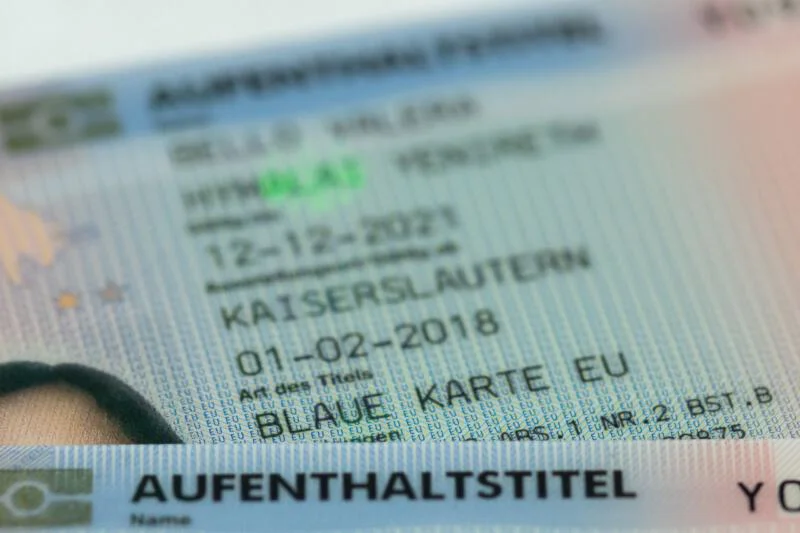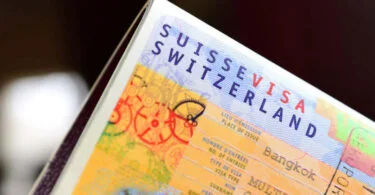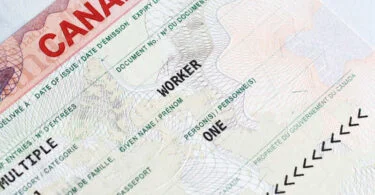Do you want to work in Europe? In 2025, the EU Blue Card will be much simpler to obtain. The European Union has revised its skilled worker visa scheme to attract global talent and address crucial labor shortages.
This extensive manual summarizes significant changes, application conditions, and fast-track alternatives, empowering you to confidently navigate your European professional journey.
Table of Contents
What Is The EU Blue Card?
The EU Blue Card is an employment and residence permit for highly skilled non-EU experts. It enables them to settle and work in most European Union nations and provides advantages such as fast-track processing, employment mobility, and a route to permanent residency.
Reasons The EU Blue Card Is Currently More Accessible
The 2025 changes concentrate on reducing access barriers and elevating adjustability. This translates to decreased income thresholds, quicker contract conditions, and even the identification of skilled experience rather than a degree. The EU is demonstrating its dedication to embracing skilled experts globally.
Significant Changes In The EU Blue Card 2025
In 2025, the European Union (EU) introduced lower income thresholds, quicker contract conditions, skilled-based qualification, more straightforward employment switching, and improved mobility, making it more accessible for skilled experts to settle and work in Europe.
1. Lower-Income Thresholds
So many EU nations have revamped their income conditions to make it simpler for experts to be eligible:
- Germany: $52,734 annually (general) and $47,776 for shortage professions.
- Sweden: The new threshold is 1.25 times the national average income, down from 1.5 times.
- Austria: the minimum monthly income has been decreased to $4,015
2. Shorter Job Contract Condition
The minimum employment contract needed has been decreased from 12 months to six months. This modification provides more adjustability for short-term job prospects in the European Union.
3. Experienced-Based Qualification
In a significant adjustment, experts with a minimum of three years of necessary job skills can now be eligible for an EU Blue Card without a university program. This is mainly useful for high-request areas such as Information Technology, cybersecurity, and AI.
4. Improved Mobility Across The European Union
EU Blue Card holders can relocate to another European Union nation for one year while maintaining their job approvals. This enables experts to investigate better professional prospects across Europe.
If you enjoy this article, don't miss out on the valuable insights and information available in our other related posts:
5. Simpler Job-Changing Procedure
Most EU nations, such as Sweden, allow Blue Card holders to change employers without applying for a new visa. Candidates only need to inform relocation authorities of their employment change.
EU Blue Card Conditions In 2025
To be eligible for the Blue Card, candidates are required to satisfy these significant standards:
- Authentic employment offer: Job contract of a minimum of six months in an EU nation.
- Income threshold: The income is required to satisfy the nation-specific minimum condition.
- Academic or job skill: An institutional certification or three years of vocational skill in a necessary area.
- Health insurance: Evidence of protection for the candidate and any dependents.
- Clean criminal history: No prior charges that could influence qualification.
Documents Needed For EU Blue Card Application
Candidates are required to present the following documents:
- An authentic passport
- A job contract from an EU boss
- Evidence of certification (degree certificate or job skill documents)
- Evidence of income adherence with a national threshold.
- Authentic health insurance
- Criminal history certificate (if needed by the nation)
- Filled out an application form.
How To Apply For An EU Blue Card In 2025
The application procedure for the Blue Card differs a little by nation. However, the typical stages stay the same:
- Get an employment offer: Get an authentic job agreement of at least six months from an employer in an EU member nation.
- Satisfy the income conditions: Make sure your income fulfills the minimum threshold placed by the nation of employment.
- Assemble needed documents: Prepare all relevant documents, including academic certificates, evidence of job skills, and health insurance.
- Present your request: Make an application at the immigration office or online, based on the nation.
- Wait for processing: Processing periods differ but automatically range from 1 to 4 months, based on the nation.
With the 2025 changes, the EU Blue Card has become one of the most competitive job visas for skilled experts worldwide. Lower-income thresholds, more straightforward certification procedures, and improved mobility make Europe an enticing location for global talent.
If you are considering applying for the EU Blue Card, fulfill the conditions and choose the nation that best aligns with your occupational objectives.





